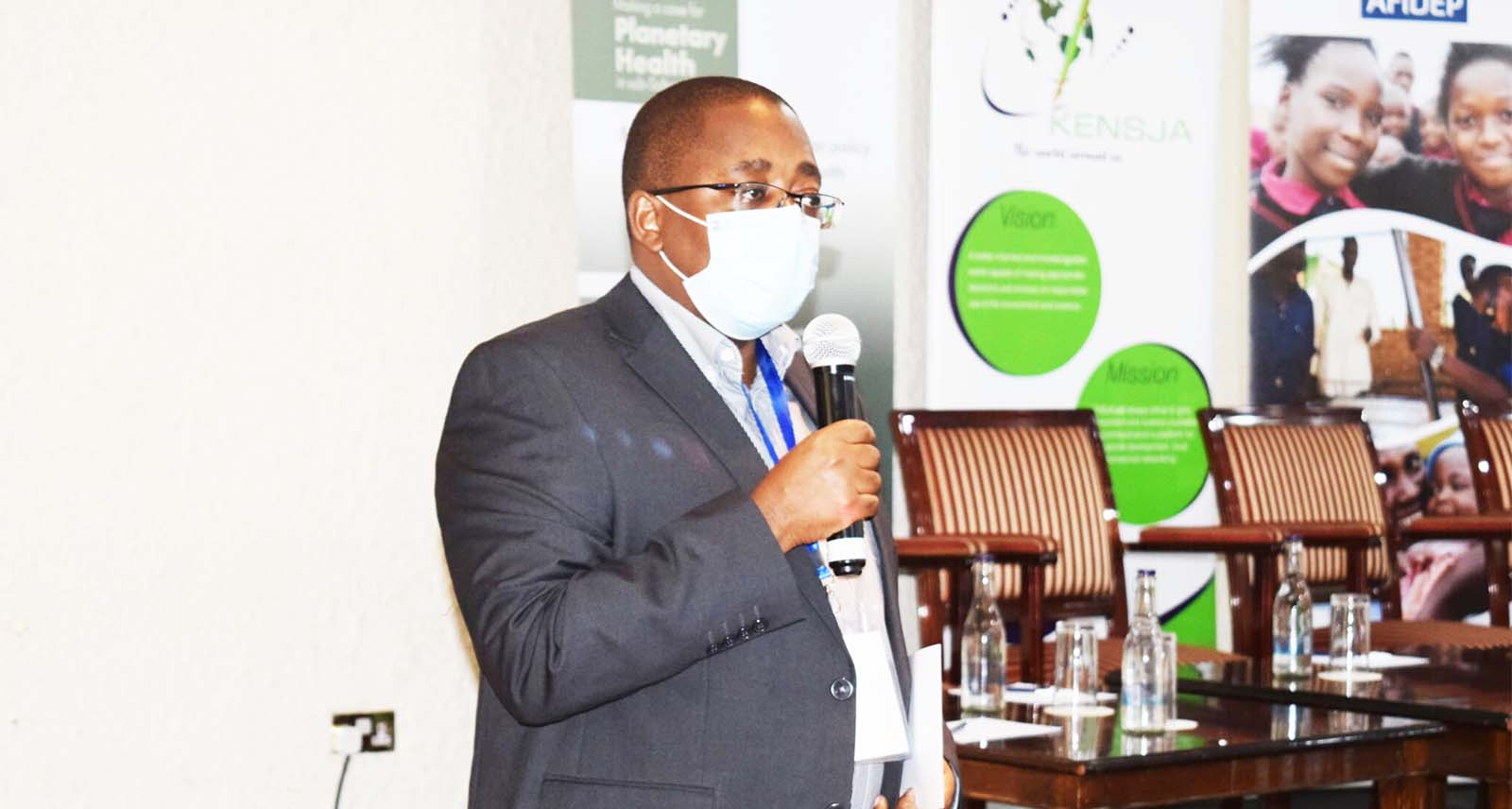Blogs

On 30 November 2021, AFIDEP through the Making a case for Planetary health in sub-Saharan Africa project convened a media breakfast meeting with the aim of positioning health in Kenya’s climate change action strategies. The event was held in collaboration with the Kenya Environment and Science Journalists Association (KENSJA).
Under the theme ‘Role of Media in Enhancing Public Understanding of Health Impacts of Climate Change in Kenya’, the meeting had experts deliberate on how the media can best support Kenya’s response to climate change and its (media) role in triggering a national debate with the aim of positioning health in climate change action plans. The event was moderated by Joe Ageyo, Editorial Director at Royal Media Services Ltd.
Media’s integral role is present all around us in shaping today’s society – from increasing public understanding to collecting views, information, and also shaping the attitude of the people towards a certain issue. Through the media, the public is informed on how government policies affect them, and governments can gather feedback on their policies and programs. Scientists, science communicators, and journalists must work more effectively together to uphold the integrity of their profession and to ensure that scientific research is more accurately reported in media.
Speaking at the event, Ochieng Ogodo, Regional Coordinator – SciDev.Net sub-Saharan Africa and Executive Board Member of the World Federation of Science Journalists noted that, “amid the availability of scientific publications that come in many technical forms, it is the role of the media to make scientific research intelligible to people who are not scientists by profession.”
Ochieng asserted that journalists cannot achieve this if they do not understand scientific and civic science literacy for personal decision-making and discoveries to matters of governance and legislation on global warming. “There is a desire for an ‘informed citizen’, therefore it is the media’s duty to inform, by creating a platform to let people know that human health is profoundly affected by weather and climate, with that – they (publics) are capable of making informed decisions,” he said.
On the linkage between climate change and diseases, Prof. William Ogara, Associate Professor, Department of Public Health, Pharmacology and Toxicology – University of Nairobi explained that climate change has affected vector-borne disease prevalence in Kenya. He noted that “through multiple pathways, climate change can affect transmission dynamics, geographic spread, and re-emergence of vector-borne diseases.”
Among others, one way he advised to mitigate the challenges was the need for governments to embrace an interdisciplinary planetary health approach which is the achievement of the highest attainable standard of health, well-being, and equity through the judicious attention to the human systems – political, economic, and social – that shape the future of humanity and the earth’s natural systems that define the safe environmental limits within which humanity can flourish.
An increase in temperatures due to climate change affects food production. This is an equal or even greater contributor to child malnutrition than the better-known causes including poverty, inadequate sanitation, and low education status. In Kenya, more than a quarter of children under the age of five, or two million children, have stunted growth. Children need to be well-nourished with strong immune systems and improved overall health, making them more resistant to sickness and disease.
Discussing the impact of climate change on human nutrition in Kenya prevalence of undernutrition challenges in the human diets, Dr. Sophie Angala, Senior Lecturer and the Head of Applied Human Nutrition in the Department of Food Science Nutrition and Technology – University of Nairobi noted that, “no single measure is adequate to mitigate climate change.” She recommended for more research on the impacts of climate change on emerging human nutrition and health challenges and the need for policymakers to generate more policies that incorporate nutrition in climate change action plans.
It is quite evident that media has become an essential part of everyone’s life in raising public understanding. Dr. Bernard Onyango, a Senior Research and Policy Analyst at AFIDEP affirmed that AFIDEP will work closely with KENSJA and the wider media fraternity to put health at the forefront of climate action. AFIDEP will do this by creating policy dialogues; providing expertise to help move conversations on planetary health and climate change action; and building the capacity of science and environmental journalists in knowledge translation, packaging, and reporting.

